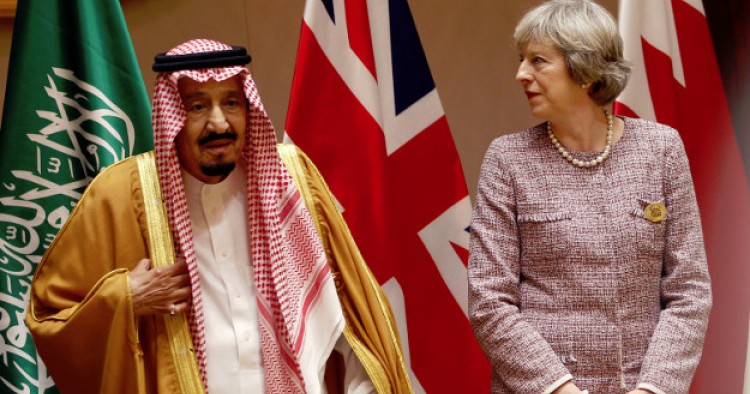The Iranian Foreign Ministry has reacted angrily to British Prime Minister Theresa May’s latest comments about Tehran’s destabilizing role in the Middle East, the ministry’s official website reported earlier today. During her trip to Saudi Arabia this week, the British prime minister had said that Iranian actions and policies destabilized the Middle East. “We have no doubts regarding Iran’s role in destabilizing the region,” she said in an interview with al-Riyadh newspaper. “Iran threatens the stability in Lebanon and Iraq, supports Houthis, and works against efforts by the international community to ensure peace and stability in the region,” she added. “We continue our support the Gulf countries against Iranian overreaches in the region”
Iranian Foreign Ministry Spokesman Bahram Ghassemi dismissed May’s allegations as “baseless,” and argued that the past policies of the British government were to blame for the current chaos and instability in the region. “The Islamic Republic of Iran strongly condemns such allegations that are made to secure the satisfaction and financial support of some regional countries. And it hopes that authorities in London understand the realities and learn from their lessons in the Persian Gulf region in the past to correct their wrong policies,” he concluded.
Comment: It is not the first time that May’s comments have angered Iran. Speaking at the Gulf Cooperation Council (G.C.C.) summit last December, the British prime minister stressed the need to “push back against Iran’s aggressive” actions in the Middle East. She told G.C.C. leaders that the United Kingdom was “clear-eyed” about Iran’s subversive actions in the region, and emphasized that the United Kingdom wanted to “make a more permanent and more enduring commitment to the long-term security of the Gulf” – including about $3.8 billion in defense spending in the region over the next decade.
Iranian leaders and media outlets interpreted May’s comments as part of the British government’s efforts to “reassert” its role in the Middle East. Ghassemi said the U.K. “has yet again resorted to divisive policies to return to the region” – an approach he called “counterproductive.” Alaeddin Boroujerdi, chairman of the Iranian Parliament’s National Security and Foreign Policy Committee, warned that the parliament might consider downgrading diplomatic ties with the United Kingdom. “The British prime minister’s remarks are not compatible with ambassador-level relations,” he opined. Tehran and London restored full diplomatic relations in September. The two countries had recalled their ambassadors in 2011 after Iranian paramilitary forces stormed the British embassy in Tehran.
The Middle East Institute (MEI) is an independent, non-partisan, non-for-profit, educational organization. It does not engage in advocacy and its scholars’ opinions are their own. MEI welcomes financial donations, but retains sole editorial control over its work and its publications reflect only the authors’ views. For a listing of MEI donors, please click here.













